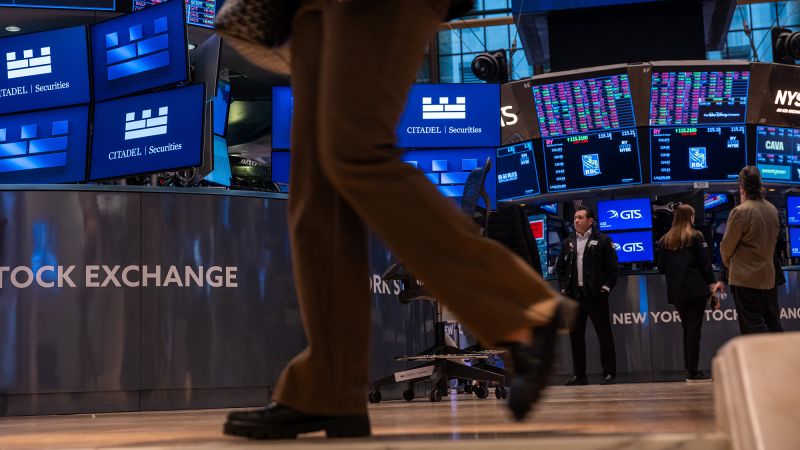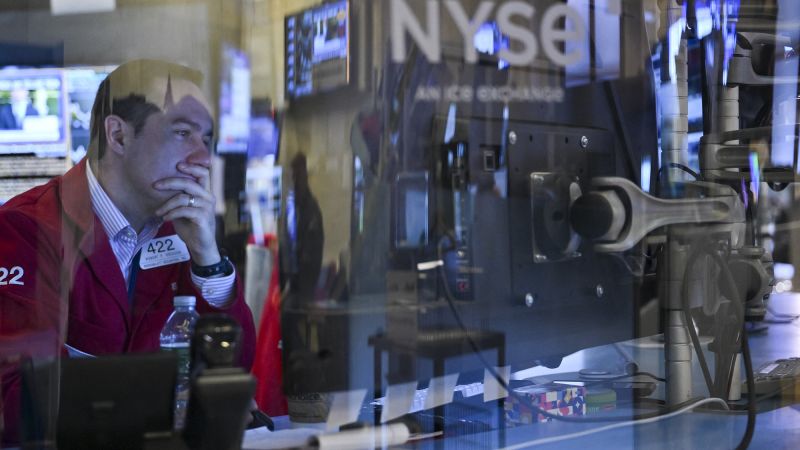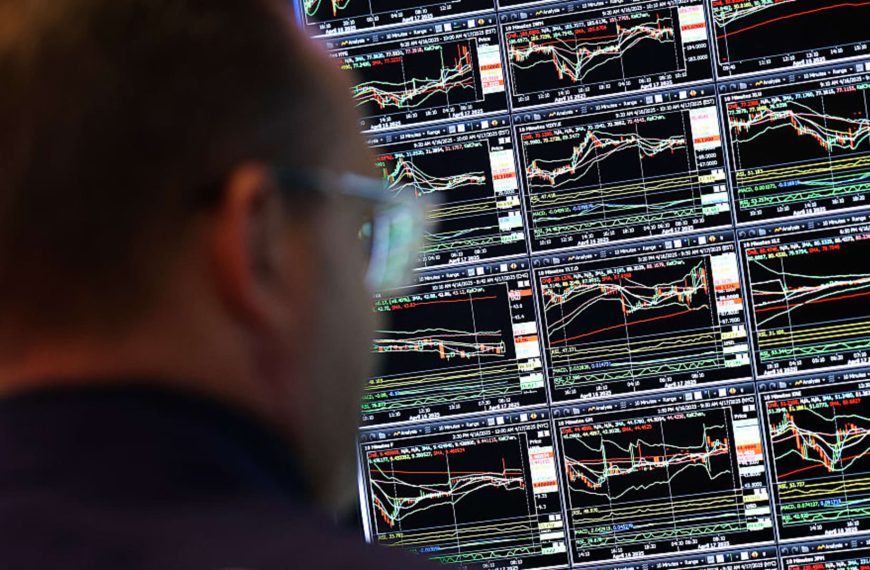American Stock Market Shows Signs of Recovery Amid Trade War Concerns
In a surprising turn, U.S. stocks experienced a rebound on Tuesday, recovering from a tough previous day on Wall Street. However, the overall sentiment in American financial markets is fraught with uncertainty, signaling that one positive day hardly mitigates the underlying issues investors are grappling with. The ongoing trade war initiated by President Donald Trump is increasingly perceived as a significant deterrent to investment in the U.S.
Stock Market Struggles
The current state of the stock market is alarming, with comparisons being drawn to the Great Depression. The Dow Jones Industrial Average suffered a staggering 9.1% drop during the initial three weeks of April, marking its most significant decline for any April since 1932. This performance is reminiscent of the dire days of April 1931.
- The S&P 500 index has also experienced a considerable downturn, plunging 14% throughout Trump’s presidency so far. This statistic represents the worst performance for a president by April 21 since records began in 1928, according to insights from Bespoke Investments.
Despite a modest recovery on Tuesday, where major indices saw a rise of over 2%, the stock market still faces an uphill battle. To put things into perspective, Franklin Roosevelt’s presidency recorded a less severe decline of just over 9% in the first 63 days of trading.
Decline of the Dollar
Investor confidence in the U.S. dollar has taken a hit, reflecting concerns about the economic landscape. Since the start of Trump’s new term, the dollar has declined by 5.5%, the most significant drop since data collection began in 1974 during Gerald Ford’s administration. This decline is particularly notable as it mirrors the challenges faced during Trump’s first term, when the dollar fell 3% in the initial 63 days.
- The dollar recently hit a three-year low, prompting further unease among traders.
Bond Market Reactions
In times of uncertainty, investors typically flock to the safety of U.S. Treasury bonds. However, this trend has shifted dramatically as government bonds have experienced a sharp sell-off. The yields on these bonds, which move inversely to their prices, have surged to 4.4%, a significant increase from just a month earlier when yields dipped below 4%. Such volatility in the bond market is unusual.
Shifting Investment Patterns
As U.S. investors withdraw from domestic stocks and bonds, there has been a noticeable increase in investments overseas. The MSCI All World Index, which excludes the United States, has risen by 2.9% since the beginning of Trump’s latest term. This uptick is comparable to the start of Joe Biden’s presidency and slightly below the growth seen during Trump’s first term, both of which coincided with a strong U.S. stock market.
Oil Market Turmoil
Concerns about a potential global recession have led to a dramatic sell-off in the oil market. During Trump’s second term, U.S. crude prices have plummeted by 19%, marking the worst start for oil under any presidential administration since Bill Clinton‘s second term. The decline in oil prices reflects fears of reduced demand for travel and shipping.
Gold as a Safe Haven
Amidst market turbulence, investors are increasingly turning to gold as a secure investment option. On Tuesday, gold prices surged above $3,500 an ounce, reaching new heights. The yellow metal has soared nearly 25% during Trump’s new term, far surpassing the previous record increase of 13.5% seen during Jimmy Carter’s presidency in 1977.
Economic Outlook
The implications of Trump’s trade policies are sending shockwaves through the global economy, as highlighted by a recent report from the International Monetary Fund (IMF). The IMF warns of a significant shift in the global economic landscape, stating, “We are entering a new era as the global economic system that has operated for the last 80 years is being reset.”
- This report anticipates slowing economic growth, particularly in the United States, along with a resurgence of inflation — a challenging combination that raises concerns among economists.
Goldman Sachs CEO David Solomon echoed these sentiments on CNBC, noting that the uncertainty surrounding Trump’s policies has hampered businesses’ ability to adapt effectively. He stated, “The level of uncertainty is too high. It’s not productive. It will have an effect on the growth of the economy, and we will see that, in my opinion, relatively quickly.”
In summary, while the stock market may have bounced back momentarily, the broader economic indicators reflect a landscape filled with uncertainty, leaving investors wary of what lies ahead.











